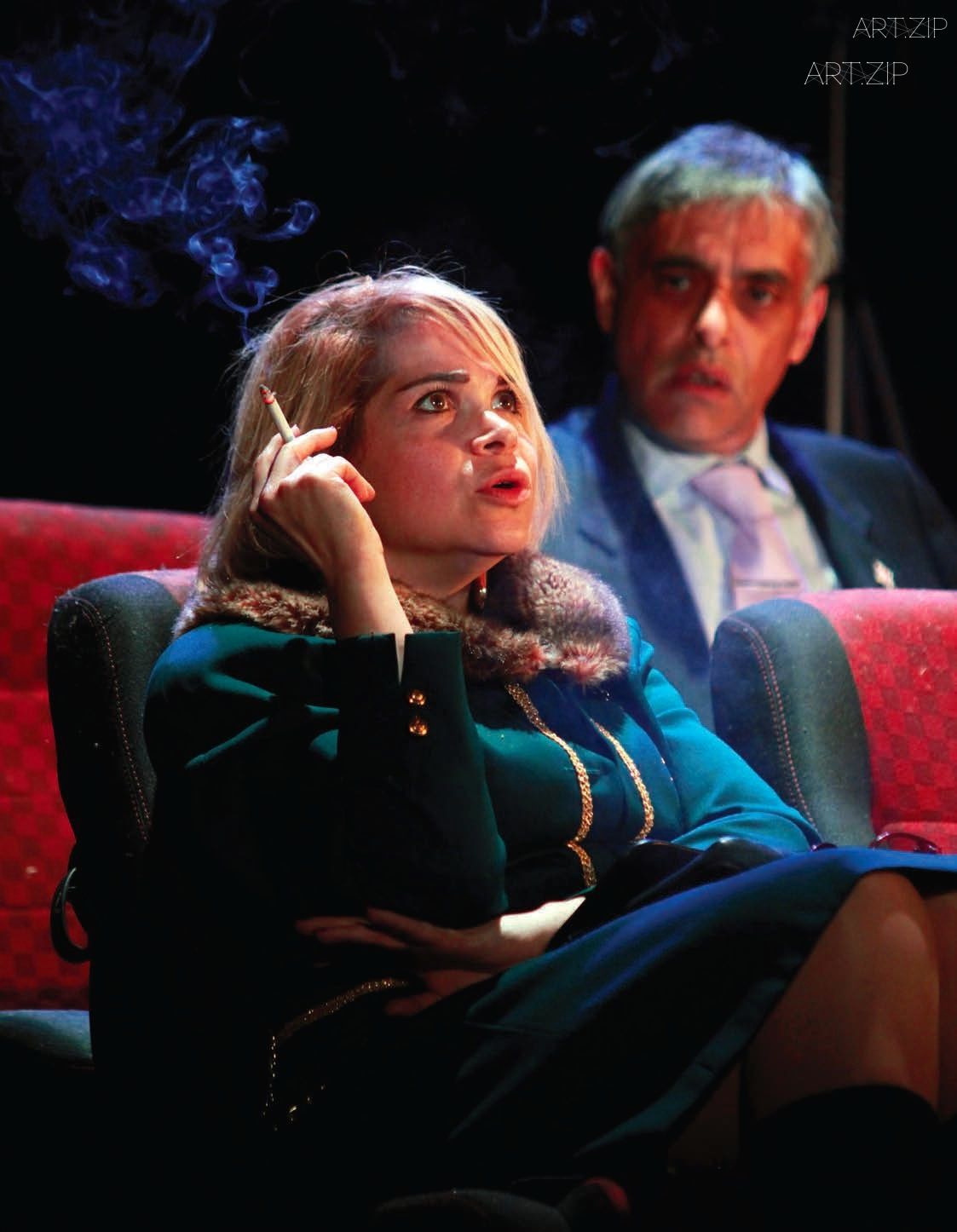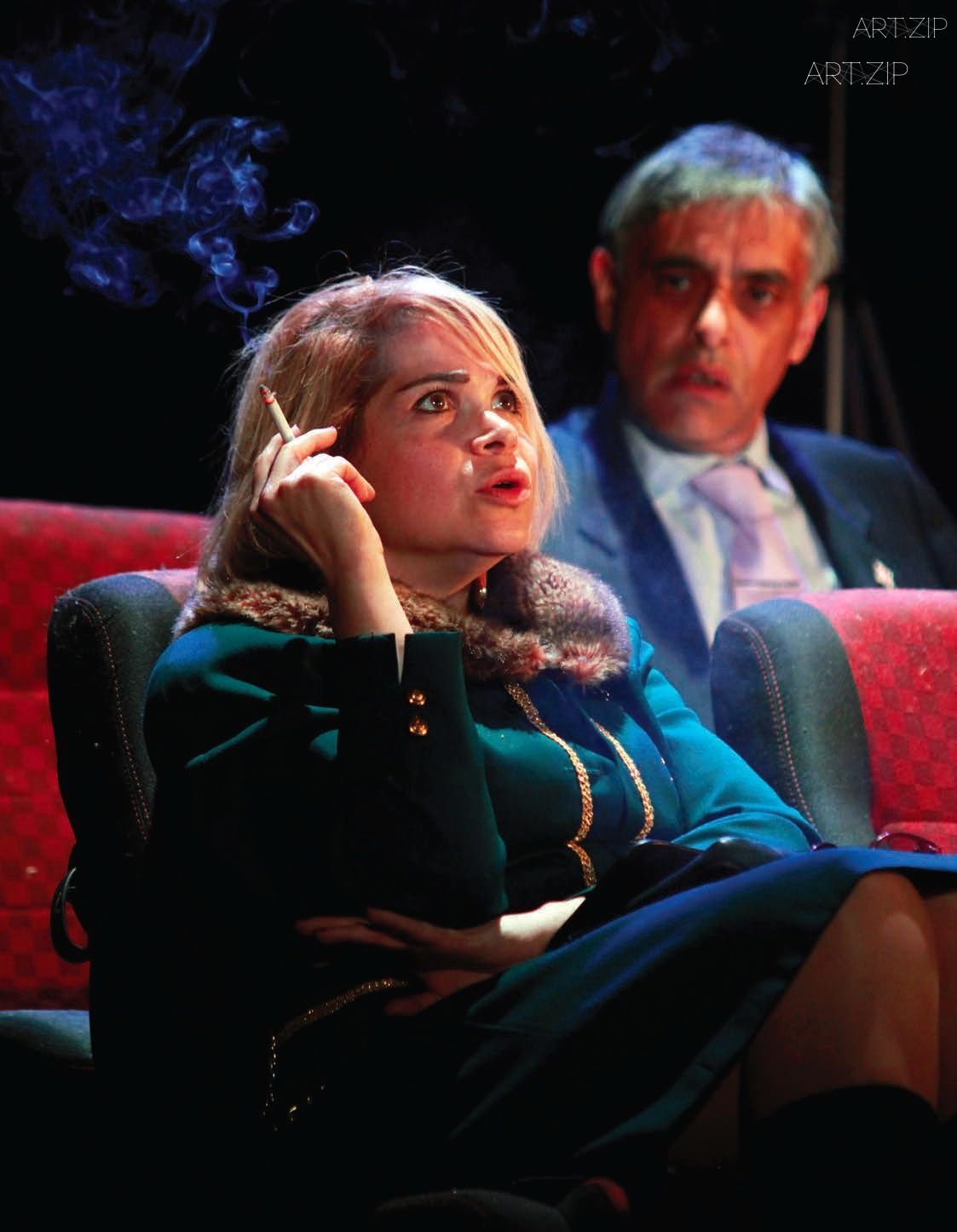

.
UNHEARD VOICES
AN INTERVIEW WITH OLA ANIMASHAWUN FROM ROYAL COURT THEATRE
未聞之音
專訪皇家宮廷劇院項目 負責人奧拉·安尼瑪舒文
.
.
PI: PERFORMANCE INFINITY / OA: OLA ANIMASHAWUN
PI:
Could you please introduce this project to our readers? Which year did it start? Why named it “Unheard Voices”? How many different themes you have focused on? What’s the selecting standard of each year’s theme?
您能向我們的讀者介紹一下這個“未聞之音”項目嗎?從哪一年開始? 為什麼把它命名為“未聞之音”?其中集中了多少不同的主題?每年的主 題有何選擇標準?
OA:
The first Unheard Voices programme began in 2007.
第一期“未聞之音”開始於2007年。
It is called Unheard Voices, because its chief aim is to identify a very specific cultural group and/or community who are traditionally under-represented on the stages of the UK – in terms of plays written by members of these communities. Hence it is as through these groups’voices, opinions, thoughts, comments and analysis of who we are and how we live now, goes ‘unheard’. They are denied a platform from which to express their views.
將該項目命名為“未聞之音”,原因是這個項目的主要目的是將一個特殊的 文化團體或群體凸現出來,傳統來說這個群體在英國的舞臺表演方面人 數極少,而且是這些團體成員所著的戲劇更是少之又少。因此,關於“我 們是誰”和“我們現在如何生活” ,這些人對此表達的聲音、觀點、想法、 意見和分析我們往往 “聽不到”,他們缺乏一個表達自己觀點的平臺。
To date we have worked with three distinct groupings of people – young Muslim writers, Chinese and East Asian writers and playwrights of Somali descent.
Each new cohort of writers is asked to submit a short piece of writing that has been written and to be performed on a stage. We then assess each piece in terms of its theatricality, vitality, imagination and ability to tell a story through dialogue and behaviour.
迄今為止,我們曾與三個不同的群組合作過——年輕的穆斯林作家,中 國和東亞作家以及索馬里裔劇作家。
我們要求每一組新興的作家都要提交一部已經完成、即將登臺表演的簡 短作品。
然後,我們對每一部作品的戲劇風格、活力特點、想象能力以及通過對 話和行為表現故事的能力進行評估。
.
PI:
What is Royal Court’s ritual in terms of working with the inexperienced playwrights? Do they get trainings from Royal Court and what’s the schedule of this 11-week scheme?
在與沒有經驗的劇作家合作方面,皇家宮廷劇院的慣例是什麼?這些 劇作家有沒有接受劇院的培訓?這個為期11週的行程安排又是怎樣的呢?
OA:
A professional playwright in conjunction leads each group with one of the Royal Court’s associate directors.
Each week focuses on a different aspect of the craft of playwriting including: where and how to begin, dramatic action, genre, structure, metaphor and storytelling – this is combined with trips to see the current shows at the Royal Court and input from guest creatives – writers, directors and designers.
每個小組都由一位專業的劇作家領導,並與劇院的一名副導演合作。
每個星期各小組都會集中討論劇本創作工藝的不同方面,包括:從哪開 始、如何開始、戲劇動作、體裁、結構、隱喻以及故事的敘述——通過 結合參觀皇家宮廷劇院現正上演的戲劇,和各位作家、導演和設計師的 創意。
PI:
What do you think is unique that makes “Unheard Voices” different from the other new writing schemes both in the UK and around the world?
你覺得是什麼讓這些聽不到的聲音有別於英國甚至全世界的其他新 寫作計劃、使其彰顯出獨特性?
OA:
It’s the first writers’ programme to target specific groups and to only consist of members exclusive to that group.
這是第一次以特定群體為目標的作家寫作計劃,並且所有成員都是 來自這個群體。
.
PI:
Will Royal Court stages the works from “Unheard Voices”? Or is there any successful case that the script developed throughout this scheme has been staged somewhere else?
皇家宮廷劇院會上演這些由“未聞之音”所創作的表演嗎?或者說在其 他地方這個團體整體創作的劇本已經上演,有沒有這種成功的案例?
OA:
The Unheard Voices initiative has to date resulted in productions here at the Royal Court for a number of award- winning writers, including Alia Bano, Rachel de-lahay, and Amber Hsu. Elsewhere writers have enjoyed success and had their plays produced by companies such as Soho Theatre; Oval House Theatre; Kali Theatre and Yellow Earth.
到目前為止,“未聞之音”在皇家宮廷劇院所創作的作品大都來自獲獎 作家,包括艾麗婭·巴諾(Alia Bano)、 瑞秋·德拉艾(Rachel de-lahay) 和徐愛博(Amber Hsu)。其他地方的作家也已取得一些成功,他們所在 的公司如蘇活劇院(Soho Theatre)、橢圓劇院(Oval House Theatre)、 卡利劇院(Kali Theatre)和黃土地大劇院(Yellow Earth)也創作出了許 多戲劇。
.
PI:
Do you think learning different communities’ culture also gives inspiration to the general programming process in Royal Court?
你認為學習不同團體的文化會對皇家宮廷劇院的創作過程帶來一些 啟示嗎?
OA:
Most definitely. By diversifying the artists we work with it introduces the whole organization to a whole range of influence
當然了。對於21世紀什麼是劇院、劇院應該是什麼樣的發展形勢等 問題,這些多元化藝術家的融入對整個組織產生了全方位的影響,帶來了 新思想新觀念。
PI:
What is the biggest challenge of “Unheard Voices”? What’s the future plan of this scheme?
“未聞之音”面臨的最大挑戰是什麼? 其未來計劃是什麼?
OA:
Funding. Every time we launch a new programme the response from the community is overwhelming. We are always over-subscribed and there is always a call from the communities to continue, and/or repeat the exercise and basically do more – the appetite is insatiable. Which of course, makes the demand on resources considerable and the need to remain vigilant, creative and imaginative in terms of finding the necessary resources, increasingly pressing.
In terms of the future, we just want to keep going, continue working with the communities we have established a bond and relationship with and consolidate all of that work – whilst simultaneously targeting new groups and uncovering and empowering more Unheard Voices – to create a universal choir of entitlement.
資金問題。每次我們推出一個新的演出項目,社會反響總是相當積 極。我們的演出訂單幾乎每次都爆滿,經常有來自各個社區的電話讓我 們繼續其他表演,或再表演一次,總之就是讓我們表演更多節目——欲 望總是無法滿足的。當然,這就需求相當大的資源,同時在尋找必要資源 的時候就要保持警覺、創造性和想象力,這也造成經費日益緊迫。

